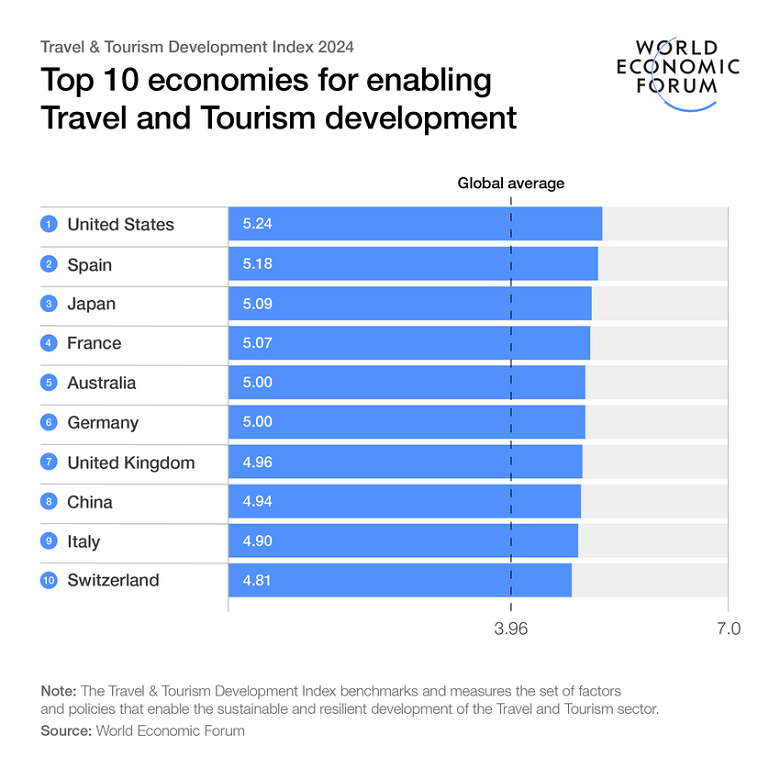Spain second world power in tourism

It consolidates its position as Europe's number one in the World Economic Forum's travel and tourism index.
In 2023, Spain consolidated its position as Europe's leading power in tourism and second in the world, behind the United States. The Travel & Tourism Development Index 2024, compiled every two years by the World Economic Forum (WEF), has given Spain 5.18 points out of seven, very close to the 5.24 points achieved by the top-ranked country and ahead of Japan's 5.09 and France's 5.07 points.
Spain's score has improved by 0.05 points compared to the last report published in 2021, and it has risen from third to second place, although the authors of the report explained that there has been a change in methodology. The introduction of new, previously unavailable data and indicators on the environmental and social impact of tourism and travel limits comparisons with the 2021 ranking.
Leader in five indicators
The report analyses five pillars, from which 17 indicators and 108 sub-indicators are derived, in a total of 119 countries. Spain achieves the maximum score of seven points in five of these indicators: rate of violent deaths per 100,000 inhabitants, percentage of population with access to the basic electricity network, percentage of population with access to safe drinking water, provision of data to travel and tourism organisations, and ratification of environmental treaties.
In three other indicators, our country ranks second and exceeds six points. This concerns the completeness of data provided to travel and tourism organisations, passport mobility and the number of operating airlines. In one of the core indicators, which measures the political dimension and the conditions conducive to travel and tourism, Spain has climbed twenty positions. In others, such as airport infrastructure and the social impact of tourism, it has risen four positions. It actually increased in nine indicators and remained the same in two.
More favourable conditions
The report notes that tourism has returned to pre-pandemic levels, but stresses that it still faces the same challenges, especially in emerging economies. More prosperous economies have more favourable conditions for travel and tourism development, thanks to supportive business environments, dynamic labour markets, open travel policies, strong transport and tourism infrastructure, and well-developed natural, cultural and non-recreational attractions.
Thus, along with Spain, another twenty-five of the world's top thirty tourism powers are high-income economies. Nineteen are European, seven from Asia-Pacific, three from the Americas and one from the Middle East. The report, produced in collaboration with the University of Surrey (UK), highlights that although 71 out of 119 countries have improved their rankings, the average score is only 0.7% above pre-pandemic levels.
The main challenges for the industry start with growing macroeconomic, geopolitical and environmental risks and include increased scrutiny of sustainability practices and the impact of new digital technologies.
Photo: World Economic Forum




